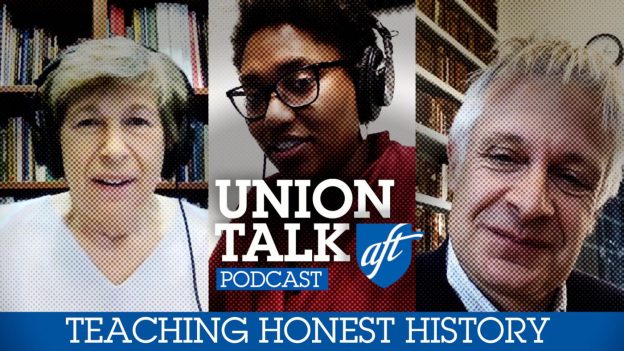- Facebook198
- Twitter2
- Total 200
AFT President Randi Weingarten invited Georgetown historian Marcia Chatelain and me to discuss controversies about American history and race in public schools on her podcast. I enjoyed the whole conversation and learned a lot.
You can listen here.
At one point, we discussed the idea of “teaching both sides.” I said that many issues do not have two sides. One view may be correct, or there may be many valid perspectives. I worry that looking for exactly two sides on every issue reinforces partisan polarization. Nevertheless, I see value in identifying issues that have two worthy sides and delving into them. I said that I choose school choice as a signature issue in my public policy course because there are valid arguments on both sides, and it is an opportunity to think about deep value conflicts.
Marcia Chatelain proposed that we really should teach both–or all–sides. Students should study the whole range of opinion. I volunteered that perhaps students should read John C. Calhoun’s defenses of slavery, and she agreed. White supremacy and slavery are parts of history.
I liked her argument and concurred with it. In retrospect, I’d only add that the best way to deal with controversy may vary by discipline. History encompasses all the opinions that people have held, and an important step in historical interpretation involves suspending one’s own judgment to understand what people–even very bad people–were trying to say. Philosophy (and the study of public policy) are inquiries into what is right. In those disciplines, it is more appropriate to be selective and evaluative. At the same time, history is crucial background for reasoning well about ethical and political issues. Anyone who is trying to decide what we should do now ought to know what Calhoun argued, because his deeply and widely held views remain part of our reality. In this sense, history and ethical/political reasoning are complementary, but they do imply different skills–and different educational choices.
See also: “Just teach the facts”; discussing school choice; school choice is a question of values not data; 50 Core American Documents; two dimensions of debate about civics; NAEd Report on Educating for Civic Reasoning and Discourse, etc.
